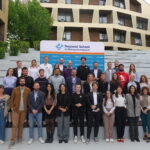Photo Clay Banks
In the Western Balkans, the so-called external or foreign influence is largely due to local “demand”. Autocrats in power want and actively seek external legitimization. ‘Top-level’ meetings, visits, participation in summits, are good PR. As long as specific commitments are not made, in the given geopolitical context, the relationship of the countries in the region and the “third actors” carries with it a tolerable risk. We start from the question of whether this is still the case.
The changing geopolitical context is characterized, first of all, by the emergence of assertive “third actors” after decades of decline (in the case of the Soviet Union/Russia), relative obscurity (China), or successful co-optation and “playing by the rules” (Turkey). Economic growth – Russia’s GDP grew eightfold from 1999 to 2007, and Turkey’s five – allowed these countries to project power. Russia and Turkey do so in Syria, the former successfully; China in the South China Sea. For many, this is a sign of strength – there is a study by Wikistrat that shows that, even in NATO member states, the first association of respondents to the notion of statesman is none other than Putin. The European Union (EU), on the other hand, does not; its power was in the policy of conditionality. Let us just remember what Serbia (for good reason!) had to go through in the first ten years following the democratic revolution, in the context of cooperation with the International Criminal Tribunal.
The arrival of China changed everything. Considering the processes of cooperation from Belgrade, the capital of the country with the largest inflow of Chinese loans and investments (in that order), there are several reasons why. First of all, “One Belt – One Road” is the closest thing to a global strategy that any major power has put into practice. Then, while China responds to our short- and medium-term needs, “we” fit into Beijing’s long-term plans. Then, according to both the President and the Minister of Finance (of Serbia), the portfolio of loans and investments will reach € 10 billion, rivaling (!) the assistance provided by the EU and related financial institutions. Chinese investments are affecting entire regions; it is enough to look at the Smederevo ironworks, the Bor mining and smelting complex or the planned tire factory in Zrenjanin: thousands of employees, huge socio-economic implications, including fear of damage to the environment. In doing so, bilateral relations with China are an example of continuity in our foreign policy: started under Tadic, continued and expanded under Vucic. The big question is whether and how any future government in Serbia will “resist” the Beijing appearance.
For third actors access points are very different. China is not interested in identity issues, but Russia is; while Turkey is primarily interested in expanding its soft power by cooperating in the field of culture (preserving tradition) and education. What will actually provide Turkey with a lasting impact is the commitment of young Bosniaks in the region to study at (often very good) Turkish universities; that is, maintaining close relations with (nationally-oriented) Bosniak political parties and building an image of Erdogan comparable to the image of Putin among Serbs.
Since the “third actors” are constantly talked about in public, and often with much exaggeration, we argue that the influence of the West is the one that continues to “outweigh” the rest. If we talk about social innovation – concepts, initiatives, frameworks for reform, policies – new ideas mostly come from the West. Let us think for a moment: Russia and China are certainly interested in the strategic sectors of our industry, but Germany (as well as Austria and Switzerland), in full cooperation and at the invitation of our authorities, promote “dual education”; a model that changes secondary vocational education in the long run and is not without controversy. The West offers us solutions but at the same time complicates the problem – perhaps consciously, perhaps not – of depopulation, a challenge so great that we do not know how to approach it. And the departure of people (no longer “just” “brain drain”), with the risk of recession in Germany, is the biggest risk to the Western Balkans economies.
The real question is how pervasive the external influence is. If there is one area we should be more concerned about, then it is security and defense cooperation – or, to be more precise, the extent to which our security systems are “penetrated”. Again, we also lack information here, and we can only judge the outcomes. Rapid extradition of six Turkish citizens from Kosovo last year; the support provided by Russia to the alleged “militarization” of Republika Srpska police; The Safe City project implemented by the City of Belgrade in collaboration with Huawei – in truly democratic societies, would be cause for grave concern.
To conclude: the worse the state of democracy, the weaker our institutions, more open are we to foreign influence.
(Oral contribution to the Second Regional Forum, Thessaloniki, 8 February 2020)
First published in Novi magazin weekly no. 459, 13 February 2020













